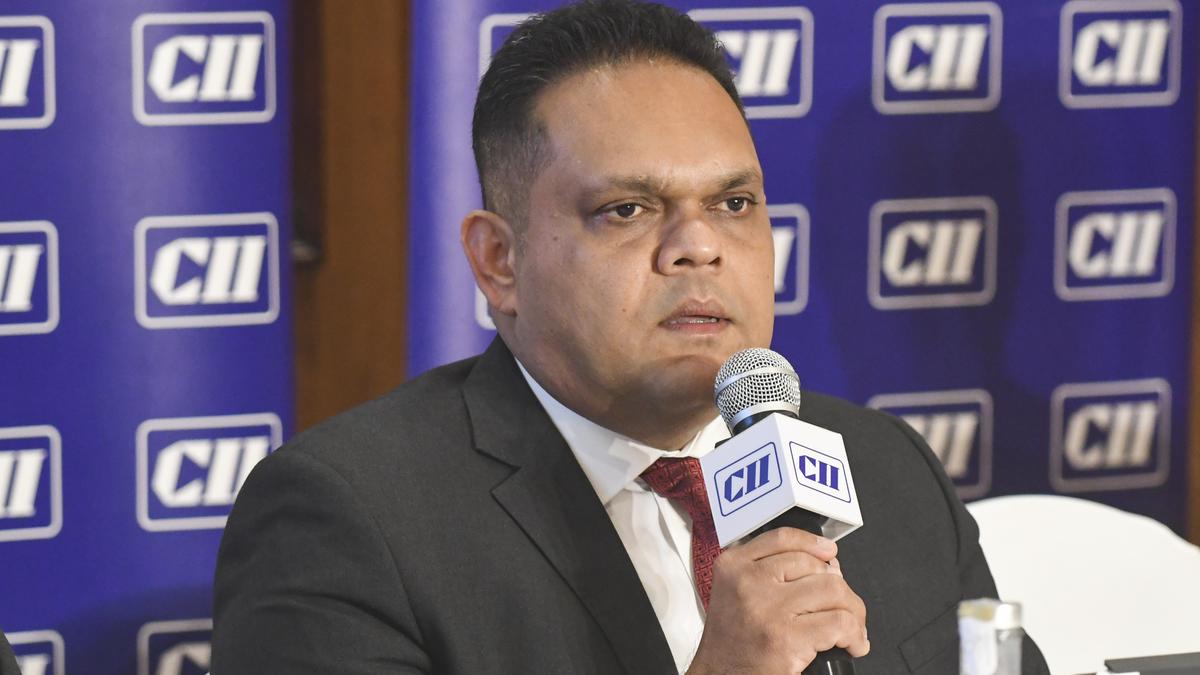Sri Lanka State Minister of Finance Asanka Shehan Semasinghe.
| Photo Credit: EMMANUAL YOGINI
Sri Lanka has reached a debt restructuring deal with the international sovereign bondholders after protracted negotiations, state Finance Minister Shehan Semasingher said on July 4, calling it a “crucial step” in the cash-strapped country’s efforts to restore debt sustainability.
In a statement, State Minister of Finance Mr. Semasinghe said that an agreement on restructuring terms was reached on July 3, completing Sri Lanka’s debt restructuring process.
“ISBs (International Sovereign Bonds) account for $12.5 billion out of the total external debt of $37 billion. This agreement is a crucial step in our efforts to restore debt sustainability,” Mr. Semasinghe said.
He added that the agreement with private bondholders was subject to the approval by the official creditor committee of nations, including India.
“This marks another key milestone in our journey towards economic revival and strengthening,” he said.
Officials said the expected haircut agreed upon would amount to 28%, with an upfront payment to ISB holders commencing from September this year.
Officials said this completes Sri Lanka’s debt restructuring process, which came as a prerequisite for debt sustainability in the ongoing International Monetary Fund (IMF) bailout of $2.9 billion extended in March 2023 over a period of four years.
It follows the finalisation of debt restructuring agreements with bilateral lenders, including India and China, in Paris on June 26, which President Ranil Wickremesinghe described as a “significant milestone” for bolstering international trust in the debt-ridden economy.
Sri Lanka declared its first-ever sovereign default in mid-April 2022, having run out of its foreign exchange reserves. The halt to the debt services meant that the multilateral creditor nations and commercial lenders could not extend fresh financing to the country.
The government faced criticism from the main Opposition after last week’s announcement on bilateral debt restructuring, who claimed that the government had failed to achieve the best solution for the country.
Dismissing the Opposition’s criticism of debt restructuring as “inaccurate,” President Wickremesinghe, also the finance minister, said, “No bilateral creditor would agree to a reduction of principal amount. Instead, concessions are allowed through extended repayment periods, grace periods and lower interest rates.” A two-day parliamentary debate was postponed as the Opposition demanded agreements to be furnished.
Mr. Wickremesinghe said he would submit all agreements and documents regarding debt restructuring to a Parliament committee upon reaching a deal with the private bondholders.

